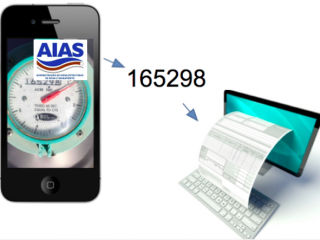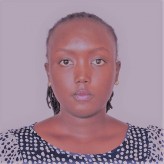Project Results:
Smart mobile water reading Moamba
More control by transparent meter reading and billing
About the project
This project aimed at the development of a smart phone app for the reading of (domestic) water meters. Goals were to make water reading more efficient and accurate, to reduce administration costs because of reduction of mistakes and rise of revenues, because of more accurate bills and increased trust by clients. The app gives both the utilities and the customers more control over their water, reducing waste and misappropriation. This project had a follow-up contract in which a finance gap is bridged and a new application is developed.
Key results
-
Development and testing of the app: it reached the required accuracy threshold and the data output was integrated in the financial-administrative processing to get the right billing.
-
Implementation in Moamba: in the pilot about 1,000 meters were covered, but the system is now expanded to 3,000 water meters.
-
The product can be applied in another context without too many adaptations.
-
Study indicates that the system can reduce the staff time for reading with 50% and administration with 90% and can lead to a 10% increase in payments. It also shortens the time lag in billing with almost 1 month, and contributes to customers’ trust. If extrapolated to the whole of urban Mozambique, this translates into a gain for the Utilities of > € 2 million per year.
Tips for the future
-
A resident manager for close monitoring and partner coordination positively contributes to project progress.
-
Know the reality on the ground: processes (like data collection and data interpretation) and physical reality such as readability of meters and network characteristics.
-
Constantly build on trust maintenance - regular contact with all partners and client groups pays off: meter readers, management, water clients, regulator.
-
Split the development in small steps, do not jump to the end-product; but keep stakeholders informed on the entire pathway.
-
Analyse social acceptance: what is the level of disruptiveness for processes, positions, revenue models?
Potential for growth
In general, the project is successful and ready for take off to next stage (though not yet for scale). There are new demos in Mozambique and South Africa for decentral urban systems with extended app functions with analytical tools. Partner organisation Collins is starting to apply the system in 12 towns in which they are the delegated operator.
Project partners
MWM, Collins Sistemas de Aguas, YEP Water programme, AIAS
Period
October 2015 - December 2017
Location
Moamba, MozambiqueMaputo, Mozambique
Den Haag, Mozambique
Last project updates
Background
Mobile Water Management BV (MWM) and COLLINS Sistemas de Agua Lda (COLLINS) are two young fast growing companies in the Netherlands and Mozambique respectively, that teamed up to improve the reliability of the billing system in Mozambique and thereby trying to secure sustainable drinking water supply in Mozambican urban areas.
COLLINS is a Mozambican water service supplier that has recently been nominated as one of the first three best small and medium enterprises in Mozambique, beating 340 local small and medium enterprises. COLLINS operates drinking water networks in small- and mid-sized Mozambican cities, providing drinking water to the least privileged.
MWM is an innovative company in the Water Management sector whose purpose is low-cost automated field data collection using just smart phones. MWM won several innovation prizes, amongst others, The Dragons Den competition, the Climate-KIC accelerator (stage 1, 2 and 3!), the Climate-KIC business competition.
Project Plan
The aim of the proposed project is to get this product ready for market as an integrated solution with key CRM & Billing vendors to:
· Activate Customer Water Meters (installation or the ‘first’ take)
· Regular Meter Readings performed on scheduled intervals and integrated within the execution plans of the meter readers
· Facilitate introduction of ‘smart simplified applications’ to be put into the hand of the customers allowing them to take their own meter readings
Target group
The project targets the households with a house connection in Moamba town. Collins aims to reach high coverage with house connections, including the least income groups. In the pilot, the target group is representative for the entire population, including gender and income levels.
Sustainability
Financial:
The service will be most attractive if used at scale. The incremental costs are low whereas the incremental revenue increases with more customers being connected to meters that are being served with this service, either by the operator or by customers directly. It is expected that CRM & Billing costs can be reduced with 20%.
Institutional:
Every water supplier needs a billing system, no matter how big or large. This innovation has the potential to reduced the costs of the billing process by up to 20%. That said, most important here is to actually proof that within the organization of a local service provider. If that is successful, others will follow. Every for profit organization strives for more efficiency as that is their reason of existance.
Environmental:
The result is that water users will have better insight in their water consumption and ultimately a higher awareness on their (over) consumption. This will lead to a decreased use of water. Also the amount of non-revenue water is reduced. Climate change might affect the amount of available water in areas in Mozambique, and thus makes this innovation even more prevalent.
Technical:
This project concerns software only. Soon a large part of the working class of sub-saharan countries will have a smartphone with internet connection, which supports a seamless integration of the technology in the local environment.
South-Africa has all ready smartphone penetration of 39.8%. By 2018 it is expected that 20% off whole african continent (200 million users) will have a smartphone (http:// edition.cnn.com/2013/11/07/opinion/real-mobile-revolution-africa-smartphone/).
Social:
Giving people insights in their water consumption and tools for guiding water consumption empowers customers, contributing to social sustainability.
Overview of Goals
Reduced billing costs for the water operators, better Customer Relationship Management and more satisfied customers
Expected follow-up after implementing this project:
More utilities have shown interest e.g. Johannesburg and Durban area(both South-Africa). Tanzania BOMBA (10 operators) and Lake Victoria area.
Results and indicators
- 60 meters tested by employees
- 4 employees testing the system
- better insight in water consumption


